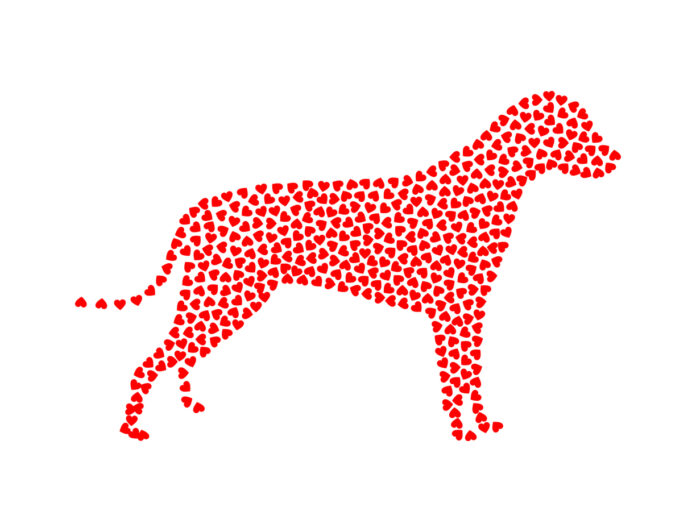The Alarming Connection Between Pet Diets and Heart Disease in Dogs
In recent months, reports have surfaced indicating a troubling uptick in heart disease among dogs linked to specific types of diets. One striking case is that of Peanut, a 4-year-old male Beagle/Lab mix, who was diagnosed with life-threatening heart disease. After experiencing lethargy, poor appetite, and coughing, Peanut’s veterinary cardiologist discovered that his owner had been feeding him a boutique, grain-free diet featuring kangaroo and chickpeas. With a combination of medication and a dietary change, Peanut’s heart has since improved significantly.
The Impact of Diet on Canine Heart Health
Heart disease affects approximately 10-15% of all dogs and cats, with certain breeds like Cavalier King Charles Spaniels, Doberman Pinschers, and Boxers having higher susceptibility rates. Traditional nutritional guidelines for pets often prioritize treatment for existing heart conditions rather than examining diet as a potential causative factor. However, a worrying trend has emerged concerning the rise of dilated cardiomyopathy (DCM) linked to unconventional dietary choices.
What is Dilated Cardiomyopathy (DCM)?
DCM is a severe heart condition resulting in weakened heart muscle and an enlarged heart, which can lead to abnormal heart rhythms, congestive heart failure, or even sudden death. While commonly seen in large breeds like Doberman Pinschers and Great Danes, recent observations indicate that DCM is also impacting smaller breeds not previously known for the disorder, including Miniature Schnauzers and French Bulldogs. An alarming association has been identified between DCM and the consumption of boutique or grain-free diets.
The Role of Taurine Deficiency
Pioneering research initially linked feline DCM to taurine deficiency, leading to mandated taurine levels in commercial cat foods. In dogs, breeds such as Golden Retrievers and Cocker Spaniels have shown susceptibility to taurine deficiency-related DCM. Some studies suggest that diets high in lamb, rice bran, and low in protein pose risks for developing this condition. However, a significant number of affected dogs present with normal taurine levels, indicating that other unidentified dietary factors may also contribute to DCM.
The Problem with Boutique and Grain-Free Diets
The surge in DCM cases corresponds with the popularity of boutique and grain-free dog foods that tout exotic ingredients. These diets gain traction due to clever marketing strategies despite a lack of scientific backing affirming their nutritional superiority. Pet owners often believe that these unique ingredients are healthier, but this assumption is grounded more in marketing than in verified research.
Why Grain-Free Diets May Not Be Beneficial
Contrary to popular belief, food allergies in pets are rare, and grains do not inherently cause health issues. In fact, grains can serve as nutritious sources of protein, vitamins, and minerals in canine diets. The misconception around grain-free diets has contributed to the proliferation of potentially harmful feeding practices.
- Subpar Nutritional Quality: Many smaller pet food manufacturers prioritize marketing over nutritional excellence, leading to potential nutrient deficiencies.
- Exotic Ingredients: The digestibility and nutrient profiles differ significantly among exotic ingredients compared to traditional ones, complicating nutritional balance.
- Quality Control Issues: Limited oversight in smaller companies raises concerns about the nutritional adequacy of their formulations.
What Pet Owners Should Do
Given the rising concern regarding diet-related heart disease in dogs, it is crucial for pet owners to reassess their pets’ diets. Here are essential steps to consider:
- Reevaluate Diet Choices: Consider shifting from boutique or grain-free diets to those made by reputable companies known for their quality.
- Monitor for Symptoms: Watch for signs of heart disease, such as lethargy, reduced exercise tolerance, coughing, or fainting.
- Consult Your Veterinarian: If DCM is diagnosed, recommend taurine testing and appropriate dietary modifications.
- Report and Document: Report any heart disease cases related to diet to the FDA for further investigation.
- Regular Monitoring: Ensure ongoing veterinary supervision and treatment as necessary.
Conclusion: Striving for Science-Based Pet Nutrition
As the pet food landscape shifts, it is vital to prioritize science-based nutrition over marketing claims. Awareness of the potential risks associated with unconventional diets can lead to healthier choices for our canine companions. By advocating for high-quality nutrition and understanding the implications of diet on heart health, we can contribute to the well-being of our beloved pets.
For additional information and resources about heart disease in dogs, visit our dedicated HeartSmart website.











